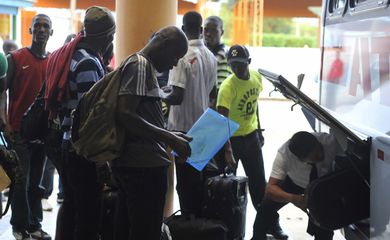Ebola outbreak requires different measures in each country

Neutralizing the current Ebola outbreak in Western Africa entails different actions in each of the countries afflicted, says Brazilian expert Doctor Denise Cardo, director of the Division of Healthcare Quality Promotion, at the National Center for Emerging and Zoonotic Infectious Diseases (NCEZID), in the United States.

Having worked at NCEZID for two decades, Dr Cardo says the center has made efforts to control and study Ebola in Africa for the last 30 years. “Our main concern is to try to increase the capacity of response and identification of the local and send people over to help in any way that proves necessary,” she pointed out.
In an exclusive interview with Agência Brasil, Dr Cardo said that, although no case of transmission of the disease has been reported outside Africa, communications about Ebola should be strengthened, due to the traffic among continents.
“Quick information is crucial to preventing Ebola from spreading, because we know that the virus is only transmitted when there are symptoms, especially fever, diarrhea, and vomiting,” she explained. She went on to say that US health professionals have been advised to learn whether a patient has traveled to Africa, in case of fever and other symptoms.

Quick information is crucial to preventing Ebola from spreading
In the US, cases have been reported of people who were infected in Africa and, once isolated, were hospitalized. The first two cases were treated and cured at the Emory Hospital, in Atlanta, the city where the Brazilian doctor lives. Dr Cardo explains that the current epidemic, regarded as the largest since the virus was discovered in 1976, has gone out of control in some countries, as is the case in Sierra Leone and Liberia, due to poor local infrastructure.
According to the doctor, it is hard to bring the outbreak of Ebola because the virus lives in animals, even though it is not active among human beings. “The best way to prevent the spread is to isolate the first case. If, in this outbreak, the first case of contamination had been properly isolated, we wouldn’t be facing the current scenario,” she said.
Cautious, Dr Cardo refrains from predicting when this epidemic will be brought under control. In her view, to contain the illness is no 100-meter run, but a marathon. Nonetheless, the expert says she feels optimistic, as there are many organizations in the area in search of an answer. “Liberia and Sierra Leone are the regions with the greatest difficulties today. As for Nigeria and Guinea, the outlook is less difficult,” she noted.
Translated by Fabrício Ferreira
Fonte: Ebola outbreak requires different measures in each country




